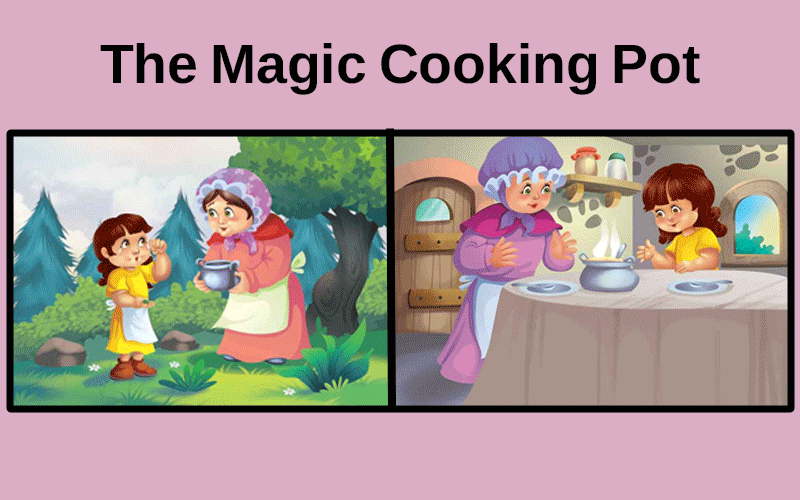Once upon a time, there lived a poor little girl named Melody and her mother in a small cottage in a village. They were so poor that they often went to bed hungry. But Melody had a beautiful voice and sang to her mother to lift her spirits.
The Story:
One day, Melody went into the forest in search of food. There she met an old witch who was captivated by her singing. As a reward, the witch gave Melody a little magical pot and told her that she could say, “Little pot, cook,” to cook food and “Little pot, stop,” to stop cooking. But, in return, she had to sing to the witch every day.
Melody took the magical pot home to her mother, and from that day on, they never went hungry again. They used the pot to cook porridge whenever they wanted. It was like magic, and they were so grateful to the witch.
One day, while Melody was away singing to the witch, her mother forgot how to stop the pot from cooking porridge. The pot kept cooking, and the porridge rose to the edge and kept on cooking until it filled the whole cottage, and then the next, and the next until the entire street was flooded with porridge.
People ran around trying to escape the flood of porridge, but it was too much. Finally, Melody came running and commanded the pot to stop cooking by saying, “Little pot, stop.” The pot obeyed, and the disaster was over.
From that day on, Melody and her mother continued to use the magical pot without any further mishaps. They lived happily and never went hungry again. And every day, Melody sang a song to the witch as promised, grateful for the magical pot that had changed their lives.
The Moral:
The story of the magic cooking pot teaches us an important lesson: to always follow through with our responsibilities and not to let greed cloud our judgment. Melody and her mother were able to overcome their poverty with the help of the magical pot, which could cook endless amounts of porridge. However, when they forgot to stop the pot, it caused chaos and destruction in the village. This event reminded them to be humble and to appreciate the things they have, instead of always wanting more. So, the moral of the story is that we should finish what we start and avoid letting our desires lead to recklessness or greed.





